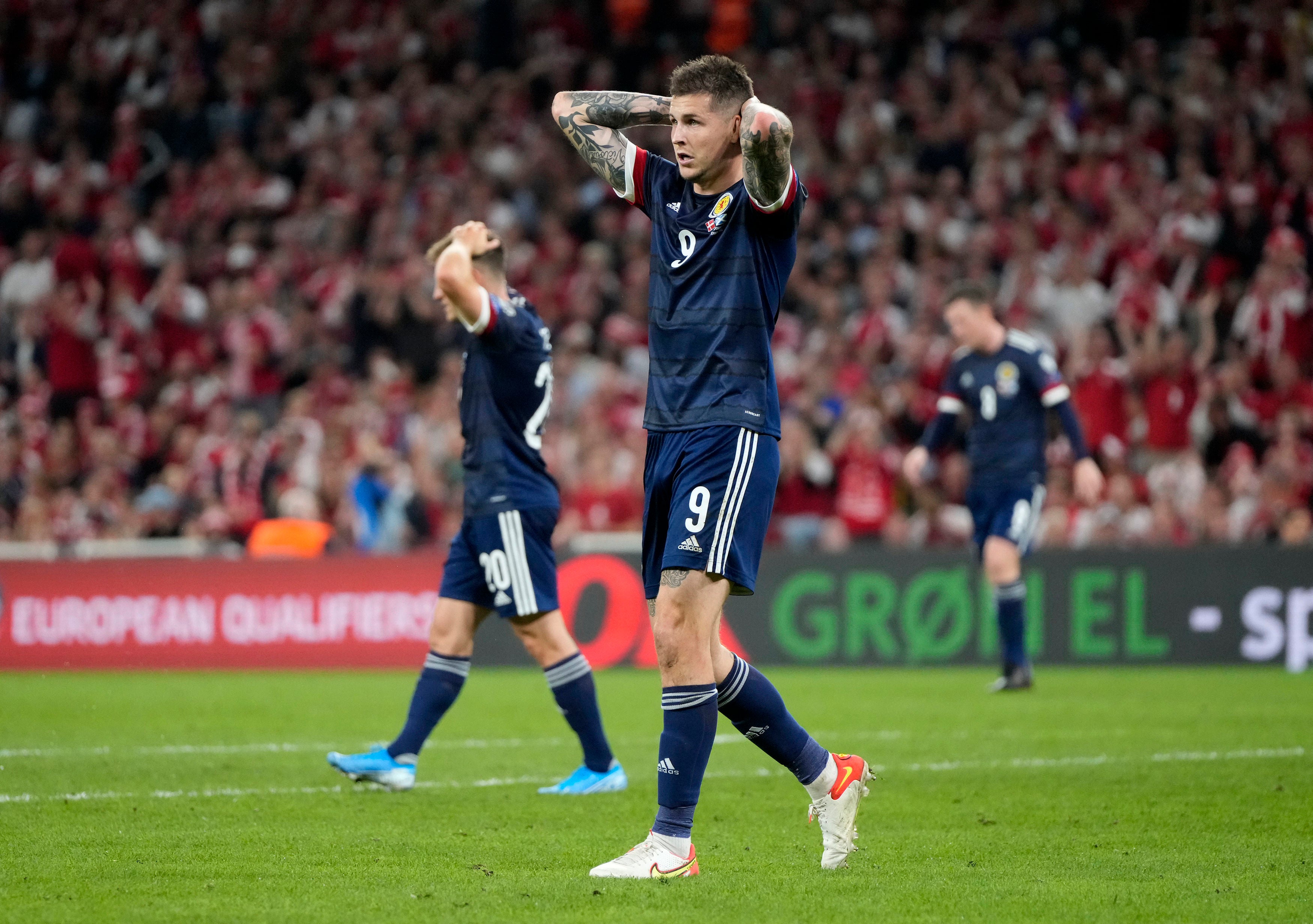Scotland vs Denmark: 5 things we learned from in Copenhagen
Steve Clarke’s men were dealt a blow in their bid to win World Cup qualifying Group F

Your support helps us to tell the story
From reproductive rights to climate change to Big Tech, The Independent is on the ground when the story is developing. Whether it's investigating the financials of Elon Musk's pro-Trump PAC or producing our latest documentary, 'The A Word', which shines a light on the American women fighting for reproductive rights, we know how important it is to parse out the facts from the messaging.
At such a critical moment in US history, we need reporters on the ground. Your donation allows us to keep sending journalists to speak to both sides of the story.
The Independent is trusted by Americans across the entire political spectrum. And unlike many other quality news outlets, we choose not to lock Americans out of our reporting and analysis with paywalls. We believe quality journalism should be available to everyone, paid for by those who can afford it.
Your support makes all the difference.Scotland’s hopes of winning their World Cup qualifying group were dealt a setback when they lost 2-0 to Denmark on Wednesday.
Steve Clarke’s team now appear to be in a three-way battle for second place in Group F with Israel and Austria.
Here are five talking points in the wake of Wednesday’s defeat in Copenhagen
Men against boys
Denmark are not seen as one of Europe’s traditional football heavyweights but the overall difference in quality between the two sides in Copenhagen was stark. The Danes played with authority and class as Clarke’s side spent most of the first half chasing shadows. While the Scots got something of a foothold in the second half, the overall performance – just a few months after being outclassed by Croatia at the Euros – underlined that Scotland are still well below even the continent’s second-tier nations in the pecking order.
Gordon’s alive
One of the few positives on a chastening evening for Scotland was that Craig Gordon who appears to be the new first-choice goalkeeper, came through a testing night without any calamity. With Allan McGregor retired and David Marshall having faded from prominence at club level, there is a clear dearth of top-level Scottish keepers for Clarke to select from, placing extra importance on Gordon being able to prove he can still operate at international level at 38. The in-form Hearts goalkeeper could do little about either of Denmark’s early goals but was a reassuring presence thereafter and made a couple of decent saves to deny Yussuf Poulsen and Thomas Delaney.
Robertson/Tierney dilemma revived
Clarke appeared to have solved the seemingly never-ending issue of how to accommodate two top-class left-backs in his team when he settled on playing Kieran Tierney at left-centre-back and Andy Robertson at left-wing-back earlier this year. However, the shortage of right-backs in the squad prompted the manager to shift Robertson to an unfamiliar right-back role in Copenhagen, while Tierney was deployed at left-wing-back. Tierney has played on the right previously for the national team and arguably would have been the better option of the two to play on the right as Robertson looked ill at ease on his weaker side before the manager reverted to his more familiar set-up in the second half.
Margin for error diminishing
After winning only one of their opening four World Cup qualifiers, Scotland sit fourth in Group F, seven points adrift of likely section winners Denmark. While they are still well in the mix for second place alongside Israel and Austria, they could desperately do with taking a minimum of four points from their next two games at home to Moldova and Austria if they are to give themselves a decent chance of finishing in the top two going into their closing four fixtures.
Scots are in poor form
While the hype around qualifying for the European Championships helped develop a welcome feelgood factor around the national team, the reality is that Scotland have not been in particularly good form for most of the past year. Since beating Serbia in their Euro play-off last November, Clarke’s team have played 11 matches and won only two – against the Faroe Islands and Luxembourg.